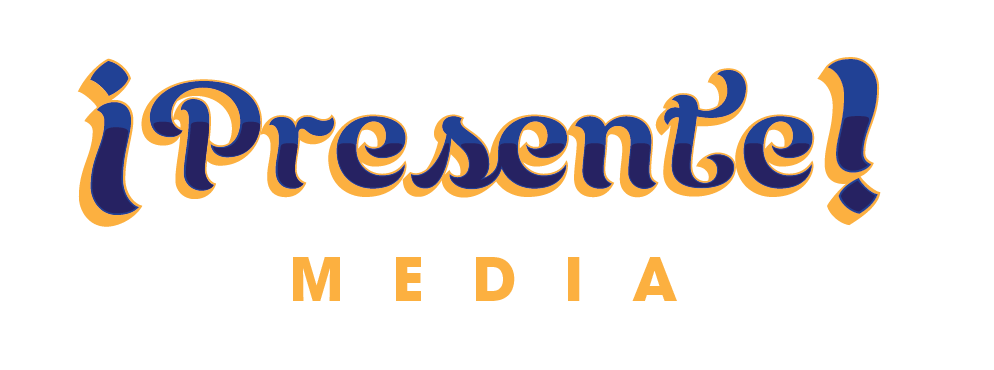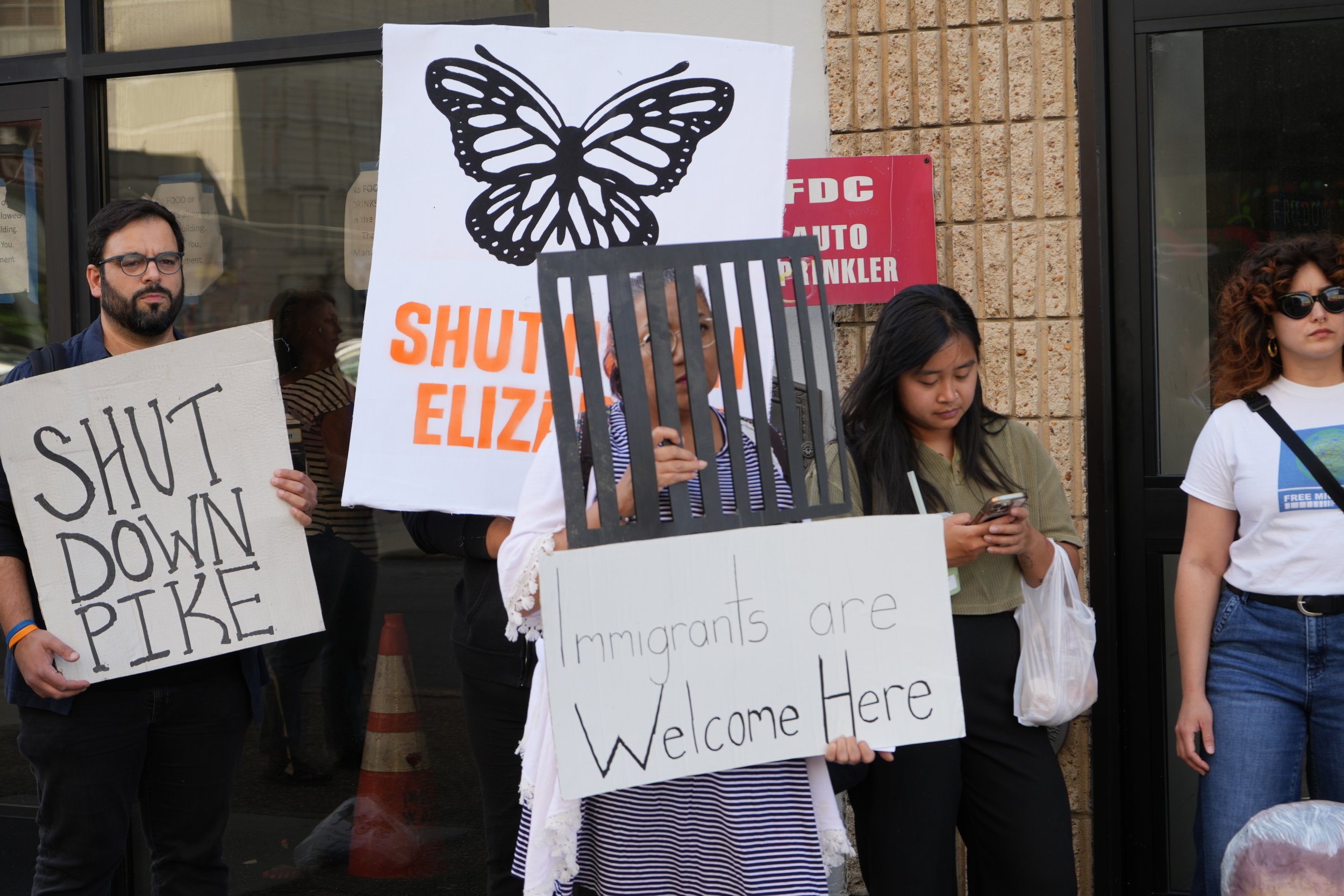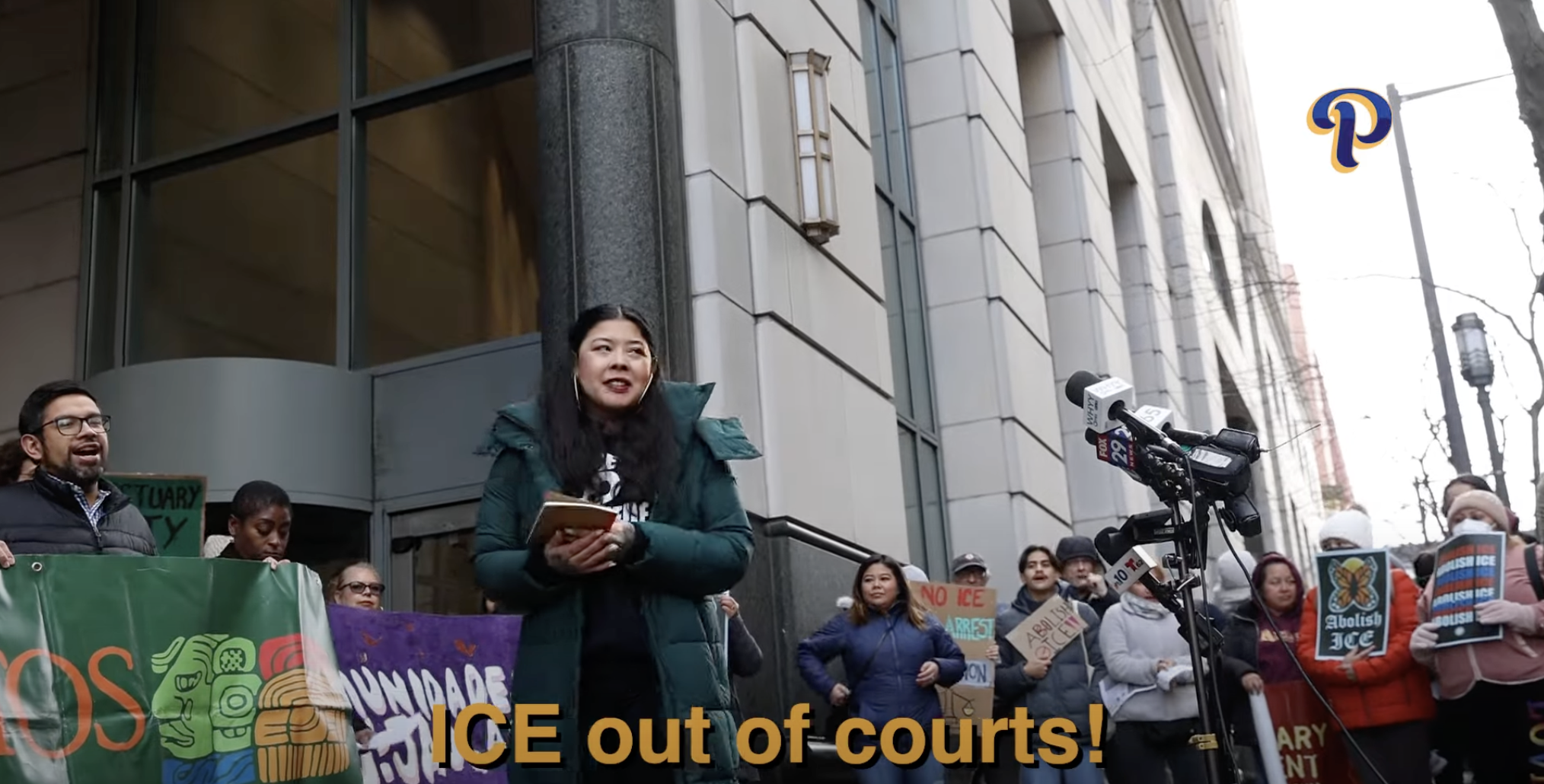Puentes de Salud: The Latinx-Focused Clinic Adapts to the COVID-19 pandemic
An Interview with Alexandra Wolkoff, Education Director
BY MELISSA BEATRIZ ON OCTOBER 27, 2020
Students of Puentes de Salud. (Courtesy of Puentes de Salud)
As the COVID-19 pandemic started to impact the United States in early March of this year, Philadelphia was no exception. The city is known as a “sanctuary city,” or more officially as a “welcoming city,” which the Office of Immigrant Affairs says means that City employees, including police officers, cannot ask individuals about their documentation status. About 13% of Philadelphians are immigrants, and approximately 25% of those who are foreign-born are undocumented.
Alexandra Wolkoff, Puentes de Salud Education Director. (Courtesy of Alexandra Wolkoff)
In April 2020, ¡Presente! Media hosted its first Encuentro Virtual, a series of moderated community conversations. One point that was raised by a participant was that much of the information that the city was sharing about COVID-19 was not being translated into Spanish. When information was translated, the translation was not done in a culturally competent way. Questions around how to prevent COVID-19, where to seek care, and how to take care of yourself if you got sick were unclear to Spanish-speaking residents.
In addition, another participant raised that Puentes de Salud closed physically during the stay-at-home order in Pennsylvania starting in March, like many other medical facilities in the region. Puentes de Salud is a clinic and community organization based in South Philadelphia that focuses on providing health services to primarily Spanish-speaking immigrants. Now, the clinic has been operating on a limited capacity and observing COVID-19 safety procedures since June.
Melissa Beatriz from ¡Presente! Media interviewed Alexandra Wolkoff, the Education Director, to understand how Puentes de Salud has been operating during the COVID-19 pandemic.
COVID-19 and Latinx/Immigrant Communities
Can you provide insight as to Puentes’ decision to close during this time?
It was a difficult decision to close back in mid-March, but it was wholly based on the fact that we couldn't get enough PPE (Personal Protective Equipment) and other supplies to remain open in ways safe to patients and our team. If the larger medical and health institutions weren't going to be open in that time, there's no way we would be able as we are so much smaller and do not have the same resources.
If folks needed to seek medical care in person, where did Puentes recommend they go?
If it's something that Annette Silva, our Community Nurse Liaison, can do, she will go to their house in some limited cases. If it's an emergency, we tell people to go to the ER and do continued education about the fact that they have a right to be seen regardless of their status.
Will undocumented immigrants face risks if they seek medical care in hospitals in the city at this time? Has Puentes had conversations about this with community members to address potential risks?
I think that there will unfortunately always be some risk, but our recommendation continues to be that if it is a true emergency that the hospital is the place to be, and again that they have a right to be seen regardless of status. Sometimes we get lucky and one of our providers is on call in the ER and can see a patient themselves and then support them on the other side via Puentes for longer term care, if indicated.
Puentes de Salud opened again on June 22.
What has this re-opening process after COVID-19 looked like?
The clinic is open for three out of our four normal shifts in person at 1700 South Street. It’s with more limited capacity than usual because of the new precautions. Right now, the clinic is doing a mix of in person clinical sessions supplemented by telehealth consults, which in our case we do over the phone.
Puentes de Salud is requiring staff and patients to follow safety health guidelines such as the usage of masks, a nurse is at the door checking patient’s temperature at the entrance, and alcohol gel dispensers are available throughout the facility.
You had mentioned there was a backlog back in June. Is that still the case? Or has opening lessened that backlog?
There's still a backlog. We offer COVID testing for free two days out of the week at Puentes. Throughout the summer and early fall, our numbers were really low. For a while, clinic was not seeing many patients with COVID-related concerns. Not to say that it's disappeared, we just think that people weren’t getting tested. Because if you get a positive test, you can lose your job, you have to quarantine, you lose wages, it leads to a whole lot of logistical things that aren't really possible for a lot of folks right now. As of the last few weeks, our numbers of people getting tested have been increasing again, as well as the percentage of people testing positive. We are seeing an increase in cases now among the community.
Steven Larson, MD, Puentes de Salud cofounder and the Executive Director with other staff members. (Courtesy of Puentes de Salud)
Essential Workers
So the folks who are not getting tested because of the reasons you mentioned, what do you think would help that? Would it be workplace protections, which I know some groups are trying to organize around?
We've been doing a lot of advertising with flyers on social media, on Philatinos Radio, posting in the community WhatsApp groups that we have. As of the last few months, we hadn’t been seeing our testing numbers moving a lot. As you said, at a larger structural level, definitely workplace protections would be great in general and very helpful for this. And as of the last few weeks, the numbers of people getting tests is increasing again.
Over the summer, we also had been offering free COVID testing to different local restaurants, but that hasn't really brought in any large-scale interest on the part of restaurant owners.
What would you want Philadelphians in general, as well as city officials to know about the health needs of immigrant and Latinx communities at this time?
In general, that someone can't be essential and disposable. To have our economy open and have the restaurants that we like to eat at be open, there are people who are behind all of those operations. The same with sanitation workers, with all these essential services and their health matters, not only because they're human beings, and they have an inherent right to that, and also are the backbone of so many of these things that a lot of us in the city, myself included, can take for granted, and wants to rely on right now.
Access to linguistically accessible healthcare is really difficult, if not impossible for many of the folks we serve, especially those who are undocumented. If you're not connected with Puentes - and Puentes can't serve every need or every situation - there's a severe lack of options and of access to what should be a fundamental right as a human being.
Puentes de Salud during group activity. (Courtesy of Puentes de Salud)
Language Justice
In some initial conversations with Latinx immigrant community members in Philadelphia, folks have expressed that there is a lack of culturally competent information about COVID-19 in Spanish. Has Puentes de Salud come across any information that has been helpful to share with community members?
Yes, culturally and linguistically appropriate materials have been hard to come by. They usually are but especially so now. In some cases, we have remade our own fliers to make them in Spanish, based on fliers/graphics from elsewhere. We do a lot of sharing and clarifying of questions/concerns/misunderstandings in the community.
What would that linguistically accurate, appropriate information look like?
This is speaking broadly, it's certainly structural issues. But just having language access as a fundamental frame for everything that you're doing, just built in. So whenever the city releases something, they often translate it into the five most represented languages, but often when you call a hotline the person who picks up only speaks English. Or there is potential phone interpretation available by the phone operator calling out to an interpretation service, but in order to connect with the live person, you often have to go through this long phone tree of options that's only in English.
I think in general all of these problems, and COVID etc., they're not going to be solved by having a new graphic that someone creates, like, “Here's a little graphic that explains something, and we're going to translate it, and then it's accessible.” That's not what we're talking about here. It has to be more, it has to be different than that, and it has to be collaborative and also be grounded in the multiplicity of different cultural backgrounds that folks come from. Interpretation and translation are fundamental to reliable language access and justice, and it also requires cultural grounding and other sensibilities.
Mutual Aid
Regarding the Emergency Food Relief program, how did that project start?
Well, in March, we developed a needs assessment survey that had questions, just as COVID was starting, about how is people's physical health? Did they have information that they needed? Do they have internet at home? How are their kids? Have they lost work? What was their food situation, things like that. So we first started by calling about 100 families of those that we work most closely with in our education program. And then we expanded it to calling 2000 families, which represents the 2000 patients that had been seen most recently in 2019-2020 at our clinic. We had a big volunteer team of volunteers that we trained. Through that needs assessment, we talked with about 1450 [out of 2000] people across 82 different zip codes. I didn't know that our reach was that big - primarily concentrated in South Philly and in Upper Darby - but also spanning so many other towns, counties, and even into New Jersey and Delaware. During those conversations, the people making the calls tried to connect folks with a food resource near them. And people with more urgent needs were referred back to us as a staff team for more in-depth or on-going support.
Connect with Puentes
Puentes de Salud will be continuing its Emergency Food Relief program indefinitely. They are seeking food packing and delivery volunteers, please connect with them if you are available.
Puentes de Salud continues to offer clinical care. For more information, email info@puentesdesalud.org.
Puentes de Salud Clinic:
For Clinic appointments: 215-454-8000
1700 South Street
Philadelphia, PA 19146















